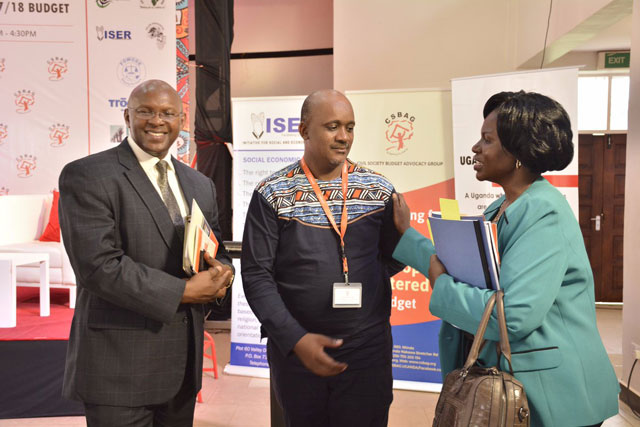

Uganda’s 2017/2018 budget: Civil Society group speaks out
Kampala, Uganda | JULIUS BUSINGE | A group of civil society organisations under their umbrella body – Civil Society Advocacy Budget Group (CSBAG) is calling on government agencies and departments responsible for budget implementation to efficiently implement the budget to benefit the common man.
The call was made at a post-budget analysis conference held at the Uganda Manufacturers Association (UMA) on June 22. The conference that attracted over 300 people from different fields was held under the theme; stimulating the economy and addressing inequalities – the role of FY2017/2018 Budget.
Finance Minister Matia Kasaija read the budget speech on June 08 with Shs 29 trillion being up for spending in the New Year that starts eight days from today (June 22).
Julius Mukunda, the executive director of CSBAG said government needs to absorb funds aimed at supporting the budget priorities to avoid paying interest rates for the money that is not used. He also said that government needs to reduce or stop borrowing internally for the benefit of the private sector.
“The strategy we want is one where…you mention something, put money in it,” he said.
Richard Ssewakiryanga, the executive director of NGO Forum said that budget spending efficiency is what Ugandans need. He also said that it is unfair for foreign experts and technical persons to be hired by government to do upper end work regarding huge infrastructure projects that are consuming bigger parts of the budget at the expense of locals. In relation to this, Ssewakiryanga said government needs to allocate funds to improve the quality of its population.
Maggie Kigozi, a director at Crown Beverages Uganda Limited and former executive director at Uganda Investment Authority said that budget priorities were spot-on. “As manufacturers we need infrastructure, electricity,” she said. Kigozi hopes that with huge investment in infrastructure, the cost of production for manufacturers will go down.
The Shs 29 trillion budget; the biggest in Uganda’s history, about Shs11.3 trillion will be spent on development in the next financial year.
The rest of the money; Shs3.5 trillion is for salaries and wages, Shs 8.3trillion is the cost of running government termed as non-wage expenditure, Shs4.99 trillion as domestic debt refinancing, and Shs757 billion is appropriation in aid or money collected and spent by departments.
In terms of real sector allocations, four out of 18 sectors of the budget are consuming 55% of the budget with works and transport taking the largest share of Shs 4.5 trillion (20.8%) up from 3.8 trillion a year before followed by interest payment due which snatched Shs2.6 trillion (12.2%) up from Shs2 trillion in FY 2016/17.
The budget saw education taking Shs 2.5 trillion up from 2.4 trillion a year before and energy and mineral development getting Shs2.3 trillion almost the same amount allocated to it in this ending financial year. The other sectors including health, security and agriculture and others took the small balance with each of them getting below 10% of the entire budget.
Thank you to everyone who spared time to be part of CSO #UGBudget17 Budget Digest. It was great.we can further strategise for next FY pic.twitter.com/elNguMTGdQ
— CSBAG (csbag.org) (@CSBAGUGANDA) June 22, 2017
 The Independent Uganda: You get the Truth we Pay the Price
The Independent Uganda: You get the Truth we Pay the Price



